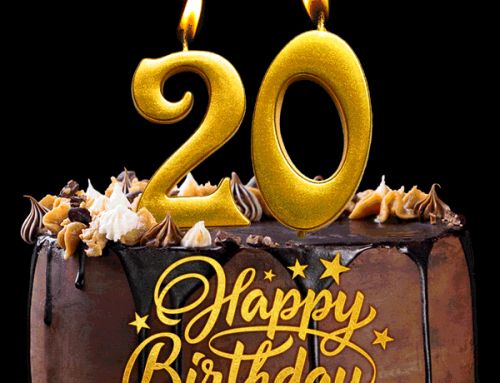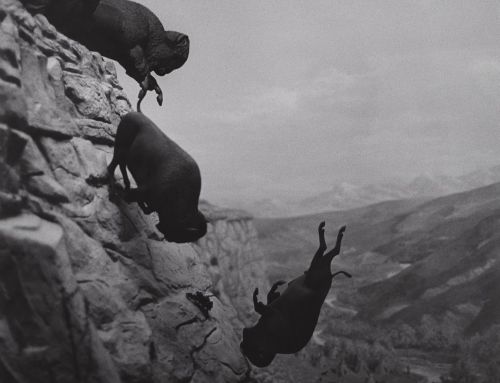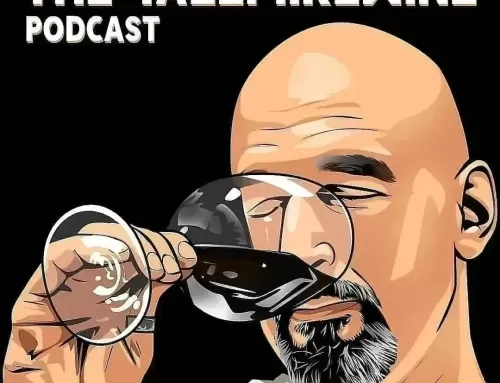Recently I wrote a post about Ten Myths About Wineries, Social Media, and Their Interaction. Today, I continue with a series of questions for wineries to ask before becoming involved in Social Media. While I write this in the context of wineries, it applies to other industries as well.
I say wineries should consider these questions before becoming involved in Social Media to encourage thinking and planning. That said, not having the answers to all of these questions should not dissuade people from becoming involved. For those who are already involved in Social Media, hopefully it will give some things to think about as well.
1. How does Social Media fit into your overall marketing strategy?
It is important to think about Social Media in the context of your overall marketing strategy. I say this because Social Media is just another tool in the toolbox. If you don’t have a marketing strategy – or don’t have a good one – it’s time to back up a step and fix this. It is important to understand up front that Social Media will not fix a bad marketing strategy.
2. What is ‘the pitch’?
What is the ‘elevator pitch’ for your winery? This needs to be short, succinct, and something that everyone can understand. To help define ‘the pitch’, think about the one thing that differentiates your winery from the other 650+ wineries in Washington. What differentiates it from the other 6,000 wineries in the United States? The tens of thousands of other wineries in the world?
I’m surprised by the extent to which people I talk to struggle with this one. If you don’t know what it is you are trying to do, how do you expect your customers to? Frequently when I ask wineries what their pitch is, the response is “Our goal is to make the best wine in Washington State.” Yawn. While short and succinct, it is far from unique. I have yet to have anyone tell me that they are out to make Washington’s most overpriced plonk! To make matters worse, if I ask these people what they think the best wine in Washington is they often can’t answer quickly. If you don’t know what the best wine in Washington is how do you intend to make it?!
In short, having a message and pitch will help drive all of the decisions you make and steps you take in Social Media and beyond.
3. How well do you know your customers/potential customers?
Who are your customers now? Who do you want them to be? What are your customers’ interests? Where do they work and play? If you don’t know your customers, how will you find out about them? Knowing something about your customers makes it that much easier to figure out how to target them effectively using Social Media. At the very least make sure you know your wine club members (and if you don’t have a wine club, get one!).
4. How committed are you to Social Media?
Figure out how committed you are to a Social Media campaign before you begin your Social Media campaign. Should you conduct a Social Media campaign at all? Frequently I see people start off strong and then taper off quickly when what they are doing doesn’t produce the immediate results they were expecting. Perhaps the most frequent example I see is people who create Twitter accounts and then let them languish. It’s okay to not be on Twitter all the time (or at all), as long as you have set up alerts to tell you when your name is mentioned. Otherwise, it is possible people are talking about you or even to you, and you are not responding. It’s like letting dust collect on your brand.
Bottom line, an un-sustained effort is worse than no effort.
5. Where do you want to go?
What are your goals with Social Media? Defining your goals is the key to achieving them. Social media can be used to increase brand awareness, improve customer loyalty, increase wine club membership, and increase wine sales among many other things. While most people I talk to are interested in doing some or all of these things, it is important to enumerate and prioritize your goals to help you determine how to achieve them.
6. How will you know if you get there?
In addition to having well-defined goals, it is important to have a way to measure success. How will you know if you are doing well or doing poorly? Many people want to measure success in Social Media only by measuring wine sales. Unfortunately, that is a pretty coarse measuring tool unless you have very tight control over how your wine is sold (i.e., exclusively through the tasting room). Measuring progress in a Social Media campaign can be done in a variety of ways. Common ways are tracking page views, comments, fans, followers etc. However, measuring your progress in some fashion is critical to determining how to focus your efforts.
7. How do you plan to get there?
How do you plan to accomplish your goals using Social Media? It’s important to have an overall plan and approach to help you be successful.
8. How much time or money do you have to devote to Social Media?
Social Media needs to fit in to all of the other things you need to do to run a winery. For this reason, it’s important to understand up front how much time (and money) you have to devote to it and whether this is consistent with what you are expecting to get out of it. Do you plan to devote one hour a week? 10 hours a week? 40 hours a week? Do you plan to do it yourself or have someone else to it for you? If you plan to have someone else do it for you, should you or shouldn’t you? Personally, I believe you can devote as much time as you want to Social Media or as little time as you want. If you invest more time, you may get more out of it. However, there are things you can do that are not particularly time intensive that can be beneficial.
9. What resources do you have? Are they the resources you need?
One of the benefits of a Social Media campaign is that it can potentially be done quite inexpensively. However, it still requires some resources. What type of resources do you have? These can be people, computers/technology, writing skills, Social Media literacy, photography/video skills, etc. How well does this match what you need to accomplish your goals?
10. What Social Media tools fit with your time, goals, and priorities?
Finally, there are numerous different tools out there from websites, to blogs, Twitter, Facebook, etc. You do not need to use all of them (unless you want to). Your just need to use the ones that are consistent with the amount of time you have available and your overall goals.







Sean, this is a well thought out tool that helps get wineries (and any business) thinking through their next steps! I wish I could make sure that every winery and every PR person in the state sees this. Great work!
Josh
Thanks Josh!